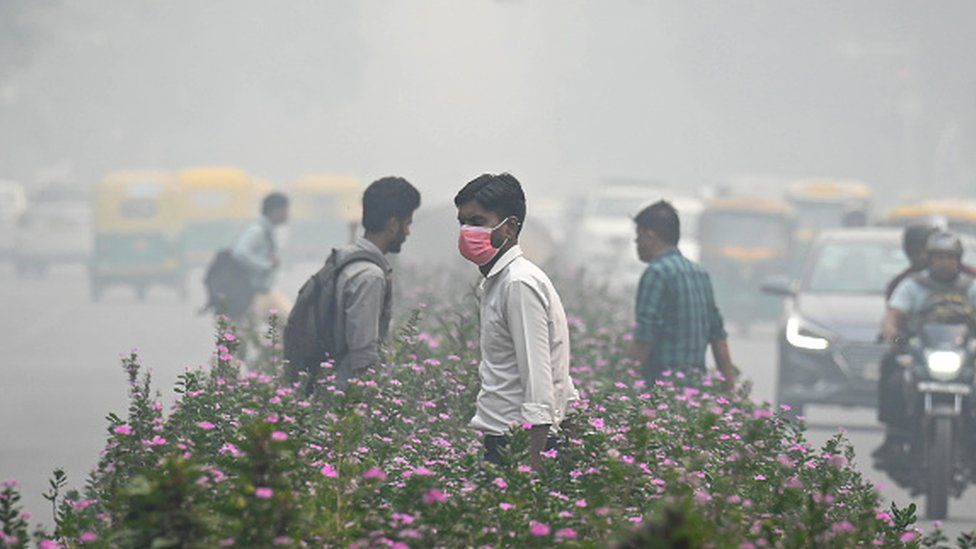Punjab Urges Climate Diplomacy with India Amid Record Smog Crisis

A province in eastern Pakistan, heavily impacted by smog, has made an unusual appeal for collaboration with India as both countries grapple with severe air pollution affecting millions of residents.
Officials in Punjab, Pakistan’s most populous province with a population of 127 million, have drafted a letter to the Indian government, advocating for a dialogue on air quality issues. Punjabi Secretary for Environment and Climate Change, Raja Jahangir Anwar, emphasized the need for “climate diplomacy” as a critical regional and global concern.
“We need to address this as a shared problem,” Anwar stated, noting that Lahore, Punjab’s megacity located just 25 kilometers from the Indian border, recently experienced unprecedented levels of air pollution.
According to IQAir, Lahore’s air quality index soared above 1,900 at one point, marking more than six times the level deemed hazardous to health. In response to the dangerous conditions, Lahore officials announced the closure of primary schools for one week and imposed restrictions on barbecue restaurants, motorcycle rickshaws, and construction activities.
The severe pollution typically intensifies each winter in northern India and eastern Pakistan due to various factors, including agricultural burning, emissions from coal-fired power plants, heavy traffic, and stagnant weather conditions.
While India and Pakistan have a history of tense relations, the worsening air quality crisis has forced both nations to acknowledge their shared responsibility in addressing climate challenges. Lahore, with over 14 million residents, is facing severe health risks associated with polluted air, which the World Health Organization links to diseases such as lung cancer, stroke, and heart disease.
Punjab’s Chief Minister, Maryam Nawaz, stated, “This is not just a political issue; it is a humanitarian issue. The winds don’t recognize borders.”
In India, air quality levels in Delhi, often competing with Lahore for the title of the world’s most polluted city, also reached hazardous levels above 500. Contributing to the smog, many residents disregarded a local ban on fireworks during the Diwali celebrations. However, milder weather conditions have provided some relief from the pollution.
The onset of winter coincides with stubble burning season, during which farmers burn crop debris to clear fields, releasing significant smoke into the atmosphere. Both India and Pakistan are taking steps to combat this practice, with India’s Supreme Court recently criticizing the governments of Punjab and Haryana for their inadequate efforts to curb illegal stubble burning. Meanwhile, Pakistan’s Punjab is promoting the use of subsidized super-seeders to encourage farmers to adopt alternative methods for managing crop residue.
As both nations face the health and environmental consequences of air pollution, the call for cooperative climate action highlights the urgent need for a shared approach to improving air quality and protecting public health.







